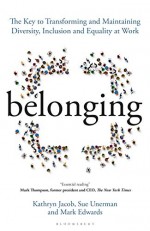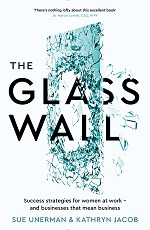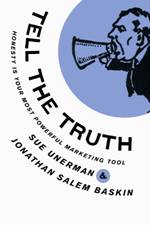-
Belonging:
Sue's new book is out now and available at amazon.co.uk

-
The Glass Wall:
Sue's second book is out now and available at amazon.co.uk

-
Tell the Truth:
Sue's first book is available to buy now at amazon.co.uk

-
Pages
-
Archives
- January 2023
- November 2022
- October 2022
- September 2022
- August 2022
- July 2022
- May 2022
- April 2022
- March 2022
- February 2022
- January 2022
- December 2021
- November 2021
- October 2021
- September 2021
- August 2021
- July 2021
- June 2021
- May 2021
- April 2021
- March 2021
- February 2021
- January 2021
- December 2020
- November 2020
- October 2020
- September 2020
- August 2020
- July 2020
- June 2020
- May 2020
- April 2020
- March 2020
- February 2020
- January 2020
- December 2019
- November 2019
- October 2019
- September 2019
- August 2019
- July 2019
- June 2019
- May 2019
- April 2019
- March 2019
- February 2019
- January 2019
- December 2018
- November 2018
- October 2018
- September 2018
- August 2018
- June 2018
- May 2018
- April 2018
- March 2018
- February 2018
- January 2018
- December 2017
- November 2017
- October 2017
- September 2017
- August 2017
- July 2017
- June 2017
- May 2017
- April 2017
- March 2017
- February 2017
- January 2017
- December 2016
- November 2016
- October 2016
- September 2016
- August 2016
- July 2016
- June 2016
- May 2016
- April 2016
- March 2016
- February 2016
- January 2016
- December 2015
- November 2015
- October 2015
- September 2015
- August 2015
- July 2015
- June 2015
- May 2015
- April 2015
- March 2015
- February 2015
- January 2015
- December 2014
- November 2014
- October 2014
- September 2014
- August 2014
- July 2014
- June 2014
- May 2014
- April 2014
- March 2014
- February 2014
- January 2014
- November 2013
- October 2013
- September 2013
- August 2013
- July 2013
- June 2013
- May 2013
- April 2013
- March 2013
- February 2013
- January 2013
- December 2012
- November 2012
- October 2012
- September 2012
- August 2012
- July 2012
- June 2012
- May 2012
- April 2012
- March 2012
- February 2012
- January 2012
- December 2011
- November 2011
- October 2011
- September 2011
- August 2011
- July 2011
- June 2011
- May 2011
- April 2011
- March 2011
- February 2011
- January 2011
- December 2010
- November 2010
- October 2010
- September 2010
- August 2010
- July 2010
- June 2010
- May 2010
- April 2010
- March 2010
- February 2010
- January 2010
- November 2009
- October 2009
- September 2009
- August 2009
- July 2009
- June 2009
-
Disclaimer:
The opinions expressed on this site are my own and do not necessarily reflect the views of my employer. The posts on this blog are provided 'as is' with no warranties and confer no rights.
Sue Unerman MediaComment is proudly powered by
WordPress
Entries (RSS)
and Comments (RSS).
How busy are you? How busy should you be?
Monday, February 14th, 2022A recent Economist article referenced the brilliant Seinfeld episode where George gets a proper job, but works out that if he acts irritated he doesn’t need to do any actual work saying: “When you look annoyed all the time, people think you’re busy.”
The columnist, Bartleby, then goes on to claim that there are even more ways to pretend to look busy in a hybrid world. He says that work has become more “performative”. You can do less by appearing virtually: making comments on documents, responding to round robin emails, looking attentive on camera.
This is a nuanced argument. In our industry work has always been about how you show up, as well as how much work you do. To claim this is easier virtually goes against the statistics of growth which we have seen in advertising and media (+35% growth in the UK ad market doesn’t just happen without people doing any work), and is somewhat dismissive of the sterling efforts the home workers who were also home schooling had to deliver. Bartleby writes: “Its not what you do. It’s how ostentatiously you do it”. It is however true that in our sector this has always been at least one route to promotion.
In my second book, The Glass Wall, success strategies for women at work and businesses that mean business, we recommend that you must be seen to have done good work, it isn’t enough just to have done it. Of course, good managers “should” recognize this, but should does not always translate into “do”.
In other jobs how busy you seem to be is not an issue, because the output is more simply measured. In a factory job I had one summer I had to keep up with the component parts that were passed to me for assembly.
In my first job in Dolcis shoe shop in Brent Cross my productivity was measured by the amount of Scotchguard shoe protection I sold. Not shoe sales, not customer satisfaction, not good fit. Cans of rain proof spray were where the margin was. In many sales jobs beating targets is directly rewarded with bonuses. There is nowhere to hide in terms of fake busy-ness there.
Other sectors pose other challenges. Do we want our caring services to be run on the basis of number of appointments achieved, or on the basis of dignity and warmth, or on a balance of the two? As chair of Healthwatch England, Sir Robert Francis says: “To focus exclusively on performance measures can leave services with a false belief they are succeeding without any real idea whether people’s care and support needs are being met or where things might need to change.”
The Economist warns of the comfort zone of so-called “Optimal Busyness” where executives are neither overwhelmed with work, nor have too much time to think, where there is a “buzz” of rushing from meeting to meeting whether or not anything productive gets done.
Agile ways of working have a remedy for this (as for so much in terms of productivity in the workplace). The scrum master, or servant leader, calculates burn down charts where productivity is predicted, and then reviewed and optimized for each scrum.
In terms of how you can get the best out of your own productivity it is personal. Think of the new theories of healthy eating, which claim everyone is individual and needs to adjust to their own metabolism. This is true of busyness as well.
My first boss in advertising claimed that there were only 4 hours of productive work in him in a day. Therefore, working hard all morning, then going to the golf club made perfect sense for him. His number two, my more immediate boss, insisted on an 8am start and 7pm finish with a tight hour for lunch.
I think the former might be right about the 4 hours of really productive work. The question is how long you need to deliver that productivity – all day/evening, or a strong morning. And looking after, and supporting your colleagues might be a crucial part of that productivity. Thanks for reading this, after all, who has time these days to read a blog?
Beware being too busy to think, in the long run it won’t be productive.
Posted in MediaComment | No Comments »